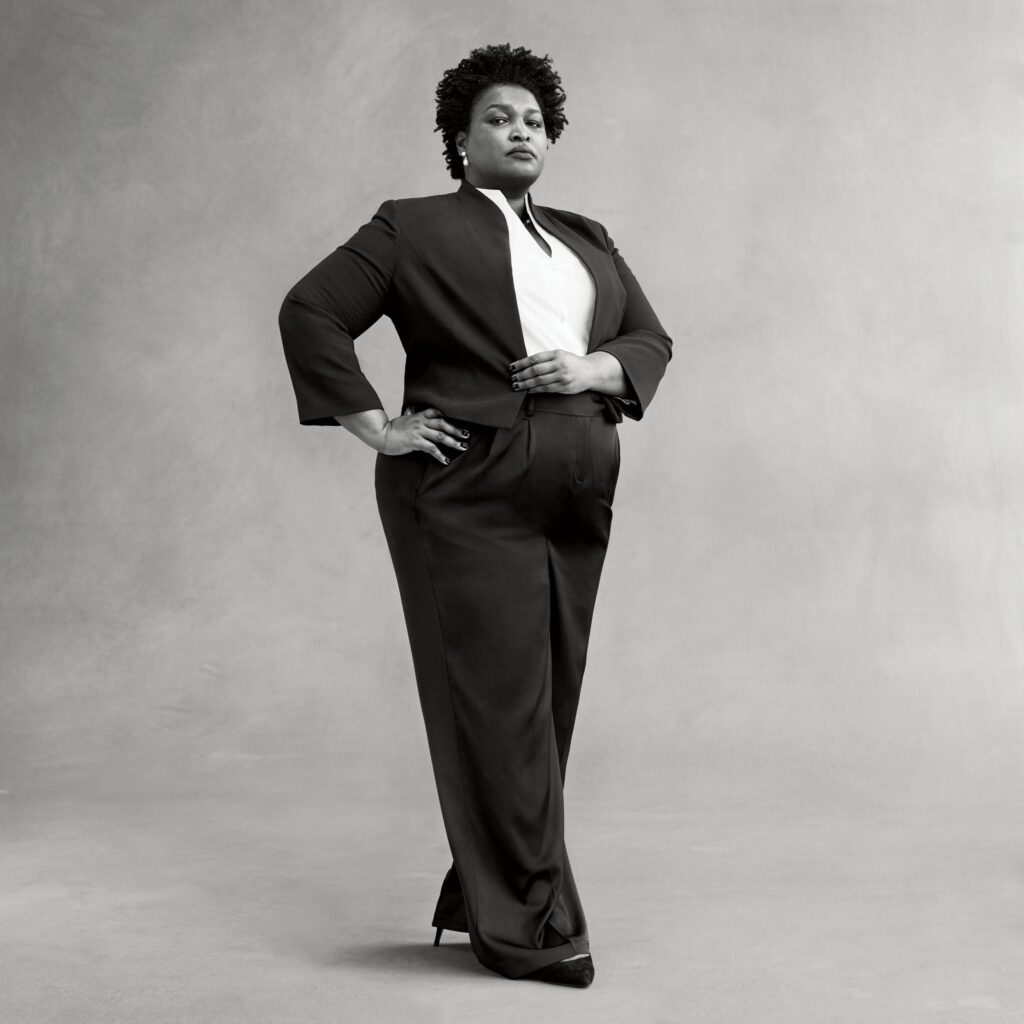
Hair, Edward Lampley; makeup, Fara Homidi.
Sittings Editor: Carlos Nazario Photographed by Ethan James Green, Vogue, September 2019
I count myself among the many nervous Americans, or global citizens if you will, that waited for results of the second of two U.S. Senate races in Georgia between incumbent Republican David Perdue and Democratic newcomer Jon Ossoff. Even though my fingernails were basically gone, superwoman Stacy Abrams remained optimistic.
“With new votes joining the tally, we are on a strong path,” she tweeted. “But even while we wait for more, let’s celebrate the extraordinary organizers, volunteers, canvassers & tireless groups that haven’t stopped going since Nov. Across our state, we roared. A few miles to go…but well done!”
When Stacey Abrams became one of the most influential unelected politicians in America, despite narrowly losing the 2018 race for governor of Georgia, she changed both the trajectory and history of the disenfranchised vote during the 2020 presidential election. She has been touted as the architect of the Democrats’ unexpected victories in both of Georgia’s U.S. Senate runoff elections; she gave the party control of both houses of Congress and ensured the elections of the state’s first Black senator with Raphael Warnock and first Jewish senator with Jon Ossoff.
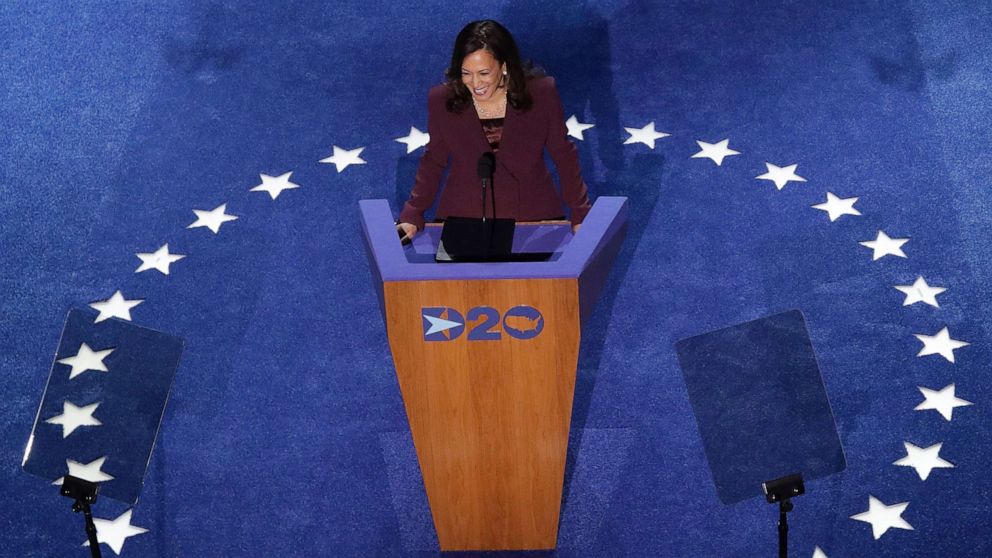
Democratic Vice President Kamala Harris speaks on the third night of the Democratic National Convention from the Chase Center, Aug. 19, 2020, in Wilmington, Del. when accepting the VP nomination.
This doesn’t even scratch the surface of the moment when then Sen. Kamala Harris, D-Calif., accepted the Democratic party’s nomination for vice president, marking her official place in history as the first Black woman and first person of Indian descent to be nominated for national office by a major political party.
Wearing a suffragette white suit and pearls in Wilmington, Delaware, Harris sent a poignant message to Black and brown women and girls everywhere in her first speech as vice president-elect.
“While I may be the first woman in this office, I will not be the last,” said Vice President Harris, the daughter of immigrants from Jamaica and India, during her victory remarks on Nov. 7. “Because every little girl watching tonight sees that this is a country of possibilities.”
Can you begin to fathom the importance of her becoming the vice president of the United
“As a Black woman myself, I am counting on it, that we will take this watershed moment and use it as an opportunity to break down barriers for women of color,” said Dnika Travis, Vice President of Research at Catalyst, a nonprofit research organization that focuses on the advancement of women in the workplace.
Travis may honestly be right on the money. Seeing the #BlackGirlMagic hashtag sprinkled on the elections by Abrams served as the wind beneath Harris’ unicorn wings, which has all the Black women and little girls beaming with the idea of seeing themselves elected into positions of power. My melanin pops a little bit brighter, sparkling like diamonds that have been polished with Shea moisture when I see more Black women take the other office. Another jewel to add to my Sister Queen crown of righteousness came when I heard the following news.
The representation of Black women in office does not end at the White House, but extends to our local officials. For many years, Alameda County progressives searched diligently for qualified candidates that would be able to successfully unseat Sheriff Gregory Ahern and Country District Attorney Nancy O’Malley in the 2022 elections. On Wednesday, Jan. 20, San Francisco police officer JoAnn Walker and Oakland civil rights attorney Pamela Prince answered the progressive call.
According to Eastbay Express, Walker announced her candidacy for Alameda County sheriff, and Price announced she will mount a second campaign attempt to unseat O’Malley as the Alameda County District Attorney. This dynamic duo is calling their collective effort to unseat the current officials the “Justice Done Right” slate.
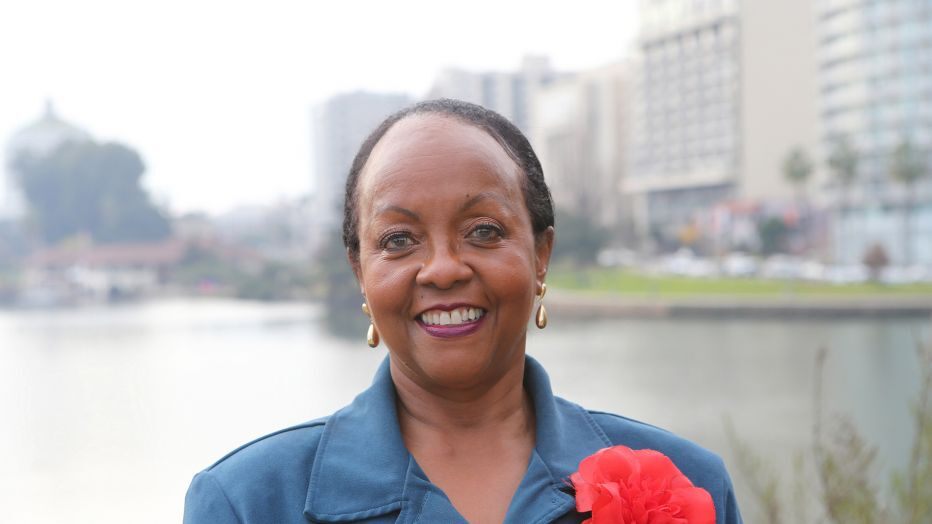
In the past, one of the biggest issues that progressives faced in launching a challenging campaign against Ahern was finding a candidate that met the prerequisite of having a successful career in law enforcement. In Alameda County, the intersection between progressive values and law enforcement officers have proven difficult for producing suitable candidates. Walker has 25 years of service with a certification for Police Officers Standards Training (POST) and has served as an instructor at the police academy for seven years.
“I am dismayed at the state of policing in Alameda County,” Walker said. “Instead of investing in meaningful and effective mental health services, de-escalation, bias training and restorative justice, Alameda County has moved in the opposite direction with a militarized police force. It is time for change and for county law enforcement to focus on truly protecting and serving residents in order to keep communities safe.”
The Appeal reports that Ahern’s handling of misconduct charges within the sheriff’s department, to include the number of deaths at Santa Rita Jail in Dublin, has increasingly angered police reform activists in recent years. Even though there’s controversy surrounding his service, Ahern kept getting reelected and has never faced a challenger during his 14 years as sheriff — until now.
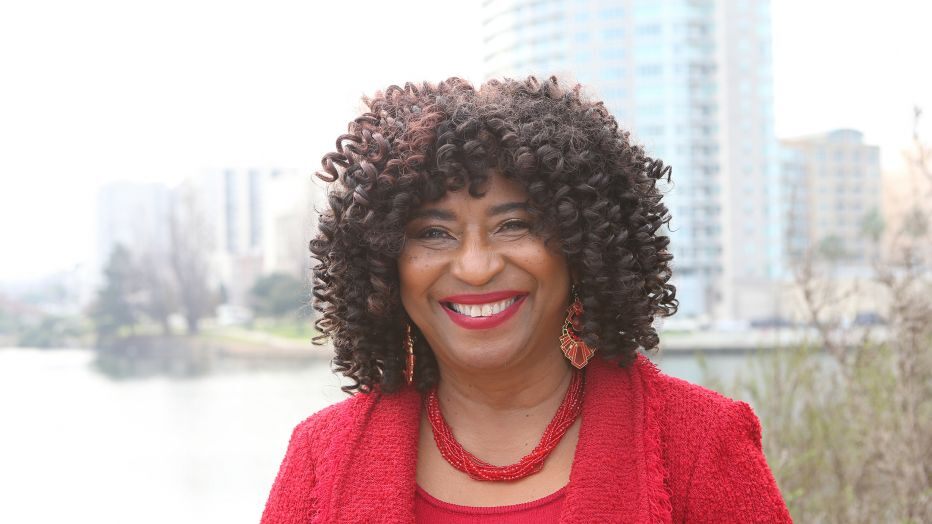
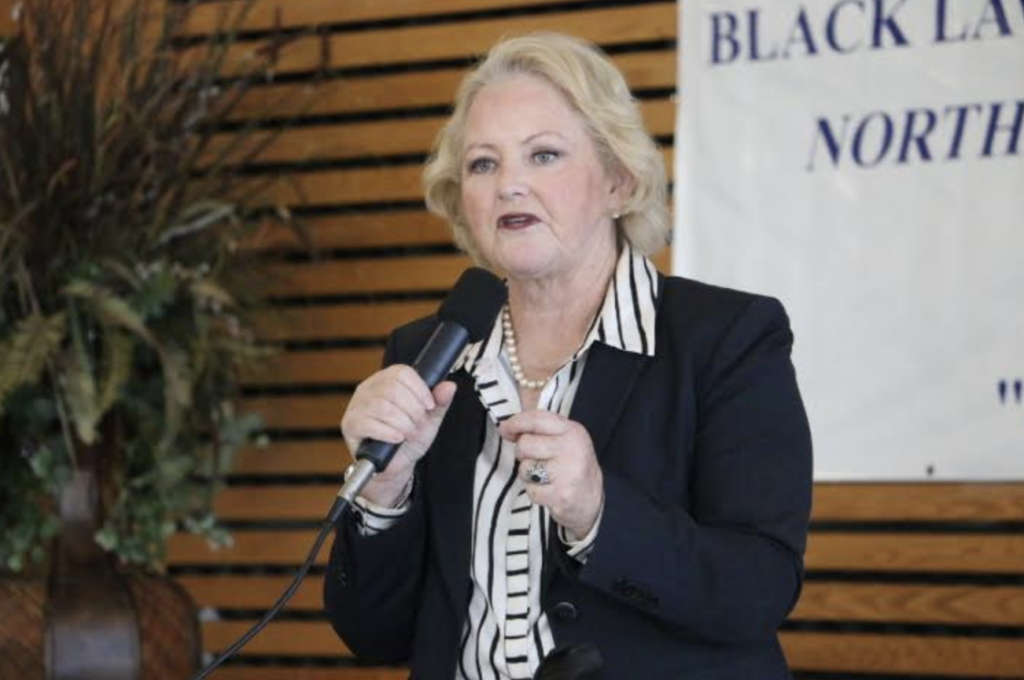
Price is well-known within Alameda County political circles, following her aggressive campaign in 2018 against O’Malley for state assembly. Although Price lost the head-to-head D.A.’s race by 20 points, her effort towards nomination revealed cracks in O’Malley’s support among Alameda County Democratic Party insiders.
Two years ago, O’Malley endorsed Ahern and then-Tri-Valley Republican Assembly member Catharine Baker shortly after receiving the Alameda County Democratic Party’s endorsement, completely undermining Democratic support.
“The events of 2020 pulled back the curtain on the broken system of criminal justice, exposing the racial, socioeconomic and gender disparities within the nation’s criminal justice system,” Price said. “It is time to restore the public trust in how justice plays out in Alameda County. Today, I announce my run for Alameda County District Attorney because I want to lead the district attorney’s office with compassion, free of police union alliances and with public safety being top of mind.”
According to the East Bay Times, despite pleas from family and supporters of Oscar Grant, O’Malley also chose not to move forward with filing new charges against former BART Officer Anthony Pirone who was involved in Grant’s death in 2009. O’Malley made the announcement after meeting with Grant’s family. While “condemning Pirone’s conduct in the strongest of terms,” she announced he could not be charged with murder or any other criminal offense.
“Although Pirone’s conduct was aggressive, utterly unprofessional and disgraceful, it did not rise to the mental state required for murder,” O’Malley said in a video statement.
In November 2020, The Hill reported a record number of elections won by Black women to Congress, building upon the historic strides seen during the midterm election two years prior. Election results showed that at least 26 Black women won election or reelection to Congress, an incremental jump from the record previously set during 2018 when 25 Black women were elected to serve on Capitol Hill.
Washington, D.C. Del. Eleanor Holmes-Norton (D) won reelection and unofficial results showed Virgin Islands Del. Stacey Plaskett (D) with a sizable lead over her opponent, Shekema George (I). All the women in question are Democrats, helping the party retain its majority in the House for the 117th Congress. The new record adds to a growing list of historic gains made by Black women running for office in 2020.
At least 130 (98D, 32R) Black women are congressional candidates in 2020, including 117 (89D, 28R) Black women candidates for the U.S. House and 13 (9D, 4R) Black women candidates for the U.S. Senate. These numbers include all Black women filed candidates, according to figures released during the summer by the Center for American Women and Politics (CAWP) at Rutgers University. CAWP tracks female political participation, demonstrating that these figures were the highest for the demographic in history. Women candidates who identify as Black alone or in combination with other races are at least 20.1% of all women that ran for the U.S. House in 2020. This is a slightly greater level of representation than in any other election year since 2004. Black women are at least 25% of Democratic and 12.3% of Republican women House candidates, which are larger percentages than in recent cycle. Another high-water mark also came into view last month when CAWP found that more than 60 Black women won their primary races.
One of those candidates was Rep.-elect Marilyn Strickland (D-Wash.), who was previously the first African American woman to serve as mayor of Tacoma, Washington, and was elected representative of the state’s 10th District. Strickland is both the first African American to represent Washington in Congress and the first Korean American woman to be elected to Congress.
While stomping ground on Capitol Hill as a veterans advocate with my brothers and sisters at Common Defense, we engage in a form of social justice and advocacy for disenfranchised bodies in the U.S
More Black women are doing the work! They are recreating “The Squad” dynamics of government representation by stepping forward and running for office. I’m not sure if it’s because so many of us are becoming sick and tired of watching shaky cell phone footage that record the last moments in the life of an unarmed Black American being gunned down by law enforcement? I don’t know if it’s because some of us are fed up with the economic disenfranchisement of our community? Or if the marginalization of Black female bodies being forced to navigate between the spaces of human trafficking and inter-cultural gender discrimination is the motivation behind Black women reclaiming their Queendom? Either way, I’m proud of us. I think we get it now. We finally have a clear understanding of the cliché saying: there is no justice for us, it’s just us fighting for us. Black women are taking this saying at face value as it is our reality, while taking the reigns to bring forward change.
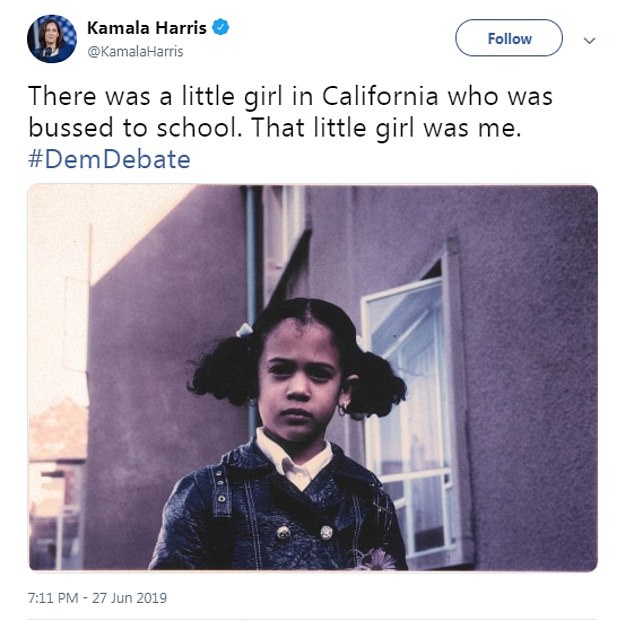
My mother told me the stories of her being bussed to a predominantly white school district in the state of Louisiana. She talked about how the bus she was on was met by an angry
Over 50 years later, I was on the ground in Washington D.C. when it was called that former Vice President Joe Biden and former Sen. Kamala Harris would be the next president and vice president of the United States of America. I shed tears. Regardless of what anyone has to say about their voting records or policies they’ve supported in the past, for me personally, seeing Harris be the next vice president was just as electrifying as when I stood on the same grounds celebrating the election of former President Barack Obama. Representation is a must! We must see women, people of color, immigrants, men and women who are LGBTQ+, gender non-conforming, disabled, combat veterans, scientists, healthcare professionals, law enforcement officers/officers of the courts, former educators and civil rights lawyers win election into key positions of American governance. They must be on the left, the right
